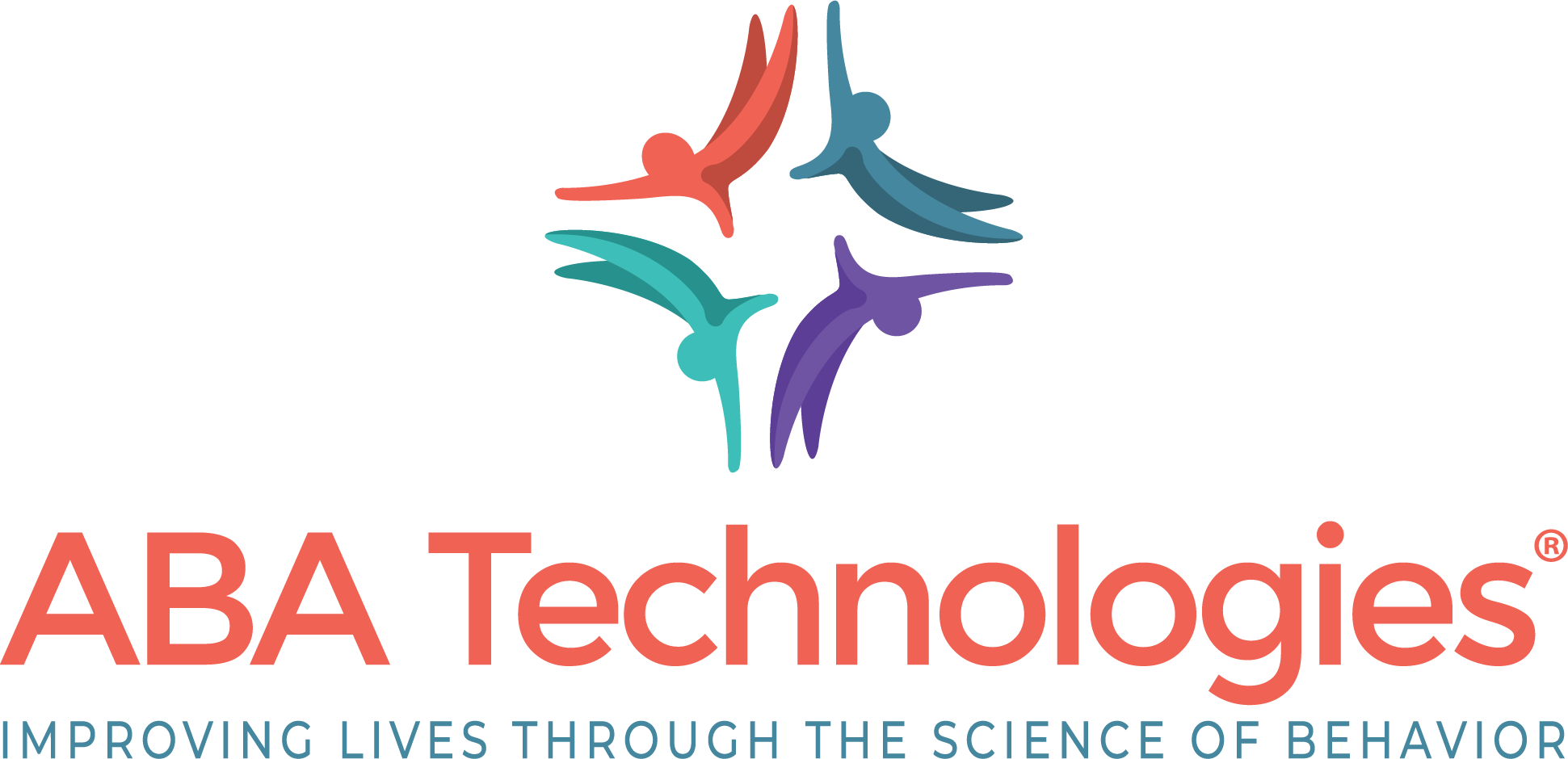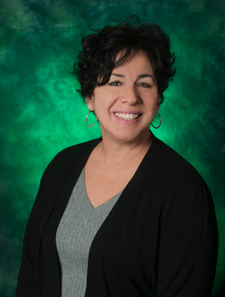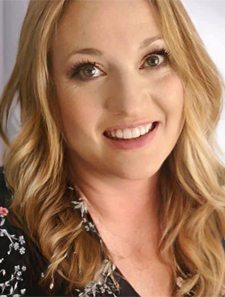
- This event has passed.
16th Annual Conference on Autism: Research-Based Solutions
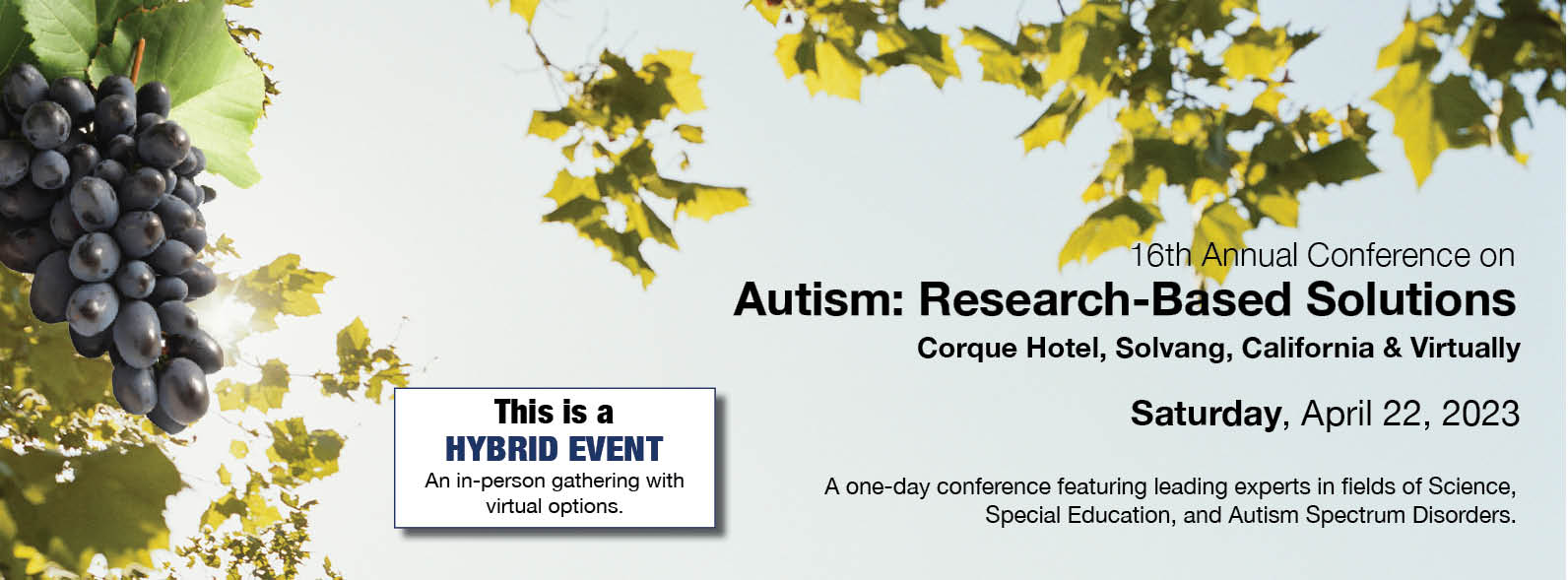
Continuing Education Opportunities
Continuing Education opportunities:
BACB® Learning CEUs and Psychology CE Credits (Includes Licensed psychologists, school psychologists, and EdDs/educational psychologists)
This is a hybrid in-person and virtual conference. Recordings will be available for 14 days. (For those seeking Psychology CE Credits, there is an additional testing process to be completed for asynchronous/home-study completion.)

BACB® Learning CEUs (6.0): The Cambridge Center for Behavioral Studies is an approved Type 2 CE Provider by the Behavior Analyst Certification Board® (BACB®) and is authorized to offer 6.0 CE units for this conference. Continuing Education Provider No.: OP-04-0058
Attendees must complete all six presentations in-person, virtually or through recordings available for 14 days post-conference for asynchronous home-study to earn CEs. (Partial credit will not be issued.) An evaluation and code quiz with a 100% score needs to be completed for issuance of continuing education.

APA Approved Sponsor
Psychology CE Credits (6.0)*: Amego Prepare is a co-sponsor of this conference for Continuing Education Credits for Psychologists. Amego Prepare is approved by the American Psychological Association to sponsor continuing education for psychologists. Amego Prepare maintains responsibility for this program and its content.
In case of a complaint, about Psychology CE Credits, contact Amergo Prepare directly through Dr. Michael Weinberg at MWeinberg@amegoinc.org.
Attendees must complete all six presentations in-person, virtually or through home-study* to earn Psychology CE Credits. (Partial credit will not be issued.) An evaluation and code quiz with a 100% score needs to be completed for issuance of continuing education. *If you are completing the conference through recordings for home-study, there is a DIFFERENT process through Amego Prepare for those seeking a certificate for Psychology CE Credits. Contact Michael Weinberg at MWeinberg@amegoinc.org.
IMPORTANT NOTES:
For BOTH In-Person and Virtual attendance, we need to verify your attendance.
Each presentation will have three (3) unique codes. You need to capture the codes. At the end of the conference, you will need to complete an electronic evaluation and pass a code submission quiz (Google Form). You need to get all codes correct for all six (6) presentations/panel to earn your Certificate. No partial credit is offered.
The link to start the process is below. It will also be announced for in-person attendees and an email will be sent to all conference attendees at 4:30 pm (EST) near the end of the conference with the link and instructions. Presentation recordings will be available for 14 days post-conference. Recording links were emailed from behavior.org@gmail.com on Sunday, April 30. The deadline for completing the online evaluation and code quiz is MONDAY, MAY 15. (If you are seeking Psychology CE Credits through home-study of recordings, the process is through Amego Prepare. Contact Dr. Weinberg at MWeinberg@amegoinc.org)
Start the process with your evaluation of our conference:
https://forms.gle/fRhLd22YauTkqev96
Those who complete the process immediately post-conference by Monday, April 24, will receive their certificates within 2 weeks of that date. Certificates for BACB® Learning CEUs will be emailed from behavior.org@gmail.com.
Those completing the process later and through home-study of recordings will receive certificates within 30 days of the completion deadline (May 15th). (If you are seeking Psychology CE Credits through home-study of recordings, the process is through Amego Prepare. Contact Dr. Weinberg at MWeinberg@amegoinc.org)
Questions or concerns? Contact Rebekah Pavlik pavlik@behavior.org
Participants are responsible for knowing and meeting the CE requirements of their licenses or certifications.
Registered attendees were emailed links to Zoom recordings and presentation PDFs on April 30th. If you do not receive, contact Rebekah Pavlik.
A one-day conference featuring leading experts in fields of Science, Special Education, and Autism Spectrum Disorders.
8:30 am – 4:45 pm California/Pacific Timezone (Open Schedule)
This is a hybrid in-person and virtual conference. Recordings will be available for 14 days post-conference. (For those seeking Psychology CE Credits, there is an additional testing process to be completed for asynchronous/home-study completion.)
Of benefit to Behavior Analysts, Psychologists, Teachers, Speech-Language Pathologists, Special Education Providers, School Administrators, Students and Parents & Caregivers
Recordings will be available for 14-days post-conference for home-study.
Groups of five (5) or more from one organization/team are offered a discount. (See pricing.) If you have a group of 20 or more, please contact pavlik@behavior.org.
Shahla Alai-Rosales, PhD, BCBA-D, LBA, CPBA-AP: Caring Hearts at the Intersection of Autism and Culture
Associate Professor
Department of Behavior Analysis
University of North Texas
Caring Hearts at the Intersection of Autism and Culture
Abstract:
What are the relations between science, ethics and progress in Applied Behavior Analysis? How does this relate to Autism? To explore this question, we look at the progression of intensive interventions in autism. This will include: an overview of the foundational and changing premises of our discipline; the emergence, impact and metamorphosis of early intervention configurations; the rapid expansion of services and service providers; and, the concerns voiced by people of color and autistic people. The proliferation of behavior analysis in autism services has brought both growth and growing pains. When facing the painful dimensions of growth, we can either choose to be complacent or humbly act to progress as an applied science that cares deeply for the people we serve. Concepts complementary to our science can offer meaningful ways to strengthen our caring hearts to honor individual and the collective.
Learning Objectives:
At the conclusion of this presentation, participants will be able to:
- Identify the relations between science, ethics and progress in ABA.
- Identify growth and growing pains.
- Identify probable outcomes of different actions in the face of rapid growth.
- Identify resources for advancing caring, progressive and culturally responsive practices in ABA.
Presenter Bio:
Shahla Alai-Rosales, PHD, BCBA-D, CPBA-AP is an Associate Professor in the Department of Behavior Analysis at the University of North Texas. She has taught courses in Texas, Europe and the Middle East on a variety of topics, including ethics, early autism intervention, parent training, behavioral systems, applied research methods, technology transfer, behavior change techniques, and cultural diversity. Shahla has served on several boards and disciplinary committees and has published and presented research on social justice, ethics in early intervention, play and social skills, family harmony, and supervision and mentoring. Shahla has more than four decades of experience working with families and has trained hundreds of behavior analysts. She has received awards for her teaching, her work with families, and for her work in the community. She is an Associate Editor for Behavior Analysis in Practice and is co-author of Building and Sustaining Meaningful and Effective Relationships as a Supervisor and Mentor (LeBlanc, Sellers & Alai, 2020) and Responsible and Responsive Parenting in Autism: Between Now and Dreams (Alai-Rosales & Heinkel-Wolfe, 2022).
Mary Jane Weiss, PhD, BCBA-D, LABA: Building the Skill Set of Collaboration: How to Build Bridges, Break Barriers, Enhance Outcomes, and Enact Teamwork
Dean of the Institute for Applied Behavioral Science
Director, Ph.D. Program in Applied Behavior Analysis
Endicott College
Building the Skill Set of Collaboration: How to Build Bridges, Break Barriers, Enhance Outcomes, and Enact Teamwork
Abstract:
Autism necessitates comprehensive care. To meet the complex needs of individuals with ASD, multiple professions must work collaboratively and in an interdisciplinary framework. Working alongside professionals from other disciplines involves addressing differences in worldview, in the definition of evidence, and in the concept of evidence-based practice. Opinions about assessment and intervention may be discrepant, and the gulfs in views can be difficult to close. The successful navigation of these challenges leads to more effective team processes and improved outcomes for clients. It also leads to mutually respectful interactions among professionals. Flexibility and interpersonal skills are needed, and clinicians need to appreciate the unique expertise offered by members of allied professions. Understanding differences of perspective and treatment requires openness to the process and recognition of the improved outcomes that stem from successfully integrated treatment. Resources that can assist in collaboration include position statements on interventions, evidence-based categorizations of treatments, and decision making tools and trees. This presentation will highlight the resources and skill development that can prepare behavior analysts for successful interprofessional collaboration. Advancing this goal can enhance outcomes for individuals served, can equip practitioners with essential skill sets, can assist organizations in achieving interdisciplinary care, and can enhance the reputation of the field.
Learning Objectives:
At the conclusion of this presentation, participants will be able to:
- List the benefits of interprofessional collaboration for autism service intervention.
- Identify multiple resources to guide teams in the selection of evidence-based interventions.
- Describe core components of the interprofessional collaboration skillset.
Presenter Bio:
Mary Jane Weiss, Ph.D., BCBA-D, LABA is the Dean of the Institute for Applied Behavioral Science and is Director of the Ph.D. Program in ABA at Endicott College, where she has been for 11 years. She also works with the research and training teams at Melmark. She has worked in the field of ABA and Autism for over 35 years. She received her Ph.D. in Clinical Psychology from Rutgers University in 1990 and she became a Board Certified Behavior Analyst in 2000. She previously worked for 16 years at the Douglass Developmental Disabilities Center at Rutgers University. Her clinical and research interests center on defining best practice ABA techniques, integrating compassionate care and cultural responsiveness into ABA service delivery, exploring ways to enhance the ethical conduct of practitioners, training staff to be optimally effective at instruction and at collaboration, and maximizing family members’ expertise and adaptation. She serves on the Scientific Council of the Organization for Autism Research, is on the board of Association for Science in Autism Treatment, is a regular contributor to the ABA Ethics Hotline, is on the editorial board of Behavior Analysis in practice, and is an advisor to the Cambridge Center for Behavioral Studies. She is a regular presenter at national and international conferences and is a frequent member of service committees for a variety of organizations.
Lorri Unumb, Esq.: Stop the Patchwork: Inconsistencies in ABA Intervention for Autism
Chief Executive Officer, The Council of Autism Providers (CASP)
Stop the Patchwork: Inconsistencies in ABA Intervention for Autism
Abstract:
Attorney Lorri Unumb will discuss the patchwork of autism services and funding streams that exists across the United States. Medicaid rates for ABA services vary dramatically from state to state; terms of coverage in state insurance laws vary; behavior analyst licensure laws are different in different states, or sometimes non-existent. Within the ABA context, significant variation exists from state to state on issues like where services can be delivered, through what age is funding available, and the extent to which caregiver participation is required. Significant variations in policy from payer to payer will also be discussed.
Learning Objectives:
At the conclusion of this presentation, participants will be able to:
- Describe differences in state autism insurance laws.
- Describe reimbursement rate variations among the states.
- Identify how payer policies vary in ABA.
Presenter Bio:
Lorri Shealy Unumb is a lawyer, mother of three teenage boys, and an internationally renowned autism advocate. She began her career as an appellate attorney with the United States Department of Justice and then as a full-time law professor. Following her son’s diagnosis with autism, she began volunteering for autism causes, writing ground-breaking autism insurance legislation for South Carolina (“Ryan’s Law”) that passed in 2007 and served as the catalyst for the national movement toward autism insurance reform. She served for a decade as the national head of state government affairs for the international nonprofit Autism Speaks. Lorri is also the founder of the annual Autism Law Summit, now in its 14th year, and is co-author of the law school textbook “Autism and the Law.” In 2010, she founded the Autism Academy of South Carolina, a nonprofit ABA center now known as The Unumb Center for Neurodevelopment.
For her local, national, and international advocacy efforts, Lorri has been recognized with
- the NASCAR Foundation’s Betty Jane France Humanitarian Award;
- the Miss South Carolina Pageant “Woman of Achievement” Award;
- the Jefferson Award for Public Service (Charleston, SC);
- the Professional Women in Advocacy “Excellence in a State Campaign” Award; and
- the Civitan International World Citizenship Award.
Her work has been profiled on CNN, on NPR’s “Morning Edition,” and in Town & Country magazine, from whom she received one of three 2009 “Women Who Make a Difference” awards. She is also profiled in the American Academy of Pediatrics 2013 book “Autism Spectrum Disorders: What Every Parent Needs to Know.”
Noor Y. Syed, PhD, BCBA-D, LBA/LBS: Compassion & Ethics in Building an Autistic Supportive Institution
Assistant Professor & Program Coordinator of Applied Behavior Analysis
Turben Director of Autism Advocacy: Center for Autism Advocacy: Research, Education, & Supports (CAARES)
Empire State University
Director, Anderson Center International
Compassion & Ethics in Building an Autistic Supportive Institution
Abstract:
The need for diversification within higher education institutions is paramount, and neurodiversity, including autism, is no exception. Most higher education institutions within the United States have traditionally served primarily neurotypical students, with approximately only 100 colleges and universities in the contiguous United States reporting specific supports for autistic students (McDermott et al., 2022). Of autistic students who do attend, only 40% complete their postsecondary education as compared to 60% of the general population (Accardo et al., 2019), indicating a critical importance for higher education staff and faculty to better meet the needs of these students. To increase inclusivity and accessibility of resources, the Center for Autism Advocacy, Research, Education, and Supports (CAARES), founded in 2020 with Empire State University, is implementing universal and tiered behavioral supports across its 80 campuses and robust online learning platforms through multi-tiered systems of support (MTSS) frameworks. While research has demonstrated that these frameworks, such as schoolwide positive behavior interventions and supports (SWPBIS), can be successful in improving behavioral and academic outcomes for primary and secondary school students, increased investigation in a higher education setting to support students with a variety of needs, including autistic students, is needed. Oversight and implementation of the MTSS initiative is collaborative, guided by advisory teams that include behavior analysts, autistic students, alumni, and advocates, caregivers in the autism community, and employees of the university. This presentation will describe actions taken to date in sustainable organizational development towards diversity, equity, and inclusion through the building of a neurodivergent inclusive university. We will share data collected on these initiatives, and describe next steps.
Learning Objectives:
At the conclusion of this presentation, participants will be able to:
- Identify strongest areas of need for the neurodiverse community in attending postsecondary institutions.
- Discuss the importance of, and ways to engage in, partnership and collaboration in building inclusive higher education environments.
- Identify ways to engage in building supports for neurodivergent students in higher education that promotes ethical and compassionate practice.
- Identify methods to support a sustainable cultural shift in higher education towards equity, inclusion, diversity, and accessibility for neurodivergent individuals.
Presenter Bio:
Dr. Noor Syed (she/her) is an Assistant Professor of Applied Behavior Analysis, Clinical Coordinator, and founding Director of the Center for Autism Advocacy: Research, Education, and Supports (CAARES) with SUNY Empire State College. She has also been named the Turben Director of Autism Advocacy. The Center’s primary initiative is to help SUNY Empire become a fully inclusive and supportive college for those who identify as neurodiverse through a multi-tiered system of support framework. In addition, Dr. Syed coordinates a Masters of Science program in ABA through SUNY Empire. She is the Director of Anderson Center International, an Adjunct Doctoral Advisor in ABA with Endicott College, and a certified general and special education teacher. Dr. Syed also serves on the ABA Ethics Hotline.
Jennifer Posey, MA, BCBA: Measuring Joy in Early Childhood ABA Sessions with the Joy Index
Director of Clinical Services
Holdsambeck Behavioral Health
Measuring Joy in Early Childhood ABA Sessions with the Joy Index
Abstract:
As a field, the focus of applied behavior analysis is to improve the lives of the individuals we serve. But often, we find ourselves on the receiving end of criticisms that we utilize restrictive practices and/or fail to embed measures of assent into our day to day sessions. Conceptually this presentation links assent to rapport, choice, self-advocacy, and self-determination. An operational definition of how this is conceptualized as joy for young learners will be provided followed by the introduction of a 27 point dichotomous scale, which can be utilized by practitioners to measure assent, participation, choice, and autonomy. This tool is the Joy Index and has been designed to help practitioners become more in touch with their client experiences and reflect on how their own soft skills can be improved to enhance the joy of learners.
Learning Objectives:
At the conclusion of this presentation, participants will be able to:
- Describe 5 indicators of joyful engagement and interactions in ABA sessions demonstrated by learners.
- Describe at least 3 indicators of practitioner behavior that may promote more joyful engagement in early childhood ABA sessions.
- Describe the role of assent, participation, and choice in developing a more positive client experience in early childhood ABA sessions.
Presenter Bio:
Jennifer Posey, MA, BCBA, is a doctoral student in Applied Behavior Analysis at Endicott College, where she is interested in the acquisition and advancement of language skills with early learners, and producing joy-filled meaningful outcomes for children with autism. She studies under the advisement of Mark Dixon, Ph.D. She received her master’s degree in Special Education and subsequently pursued certification in Applied Behavior Analysis. Jennifer has worked with individuals with autism and other developmental disabilities across the lifespan since 1999. She has a special interest in establishing foundational repertoires in early childhood to include language and play skills such that more complex language and social repertoires emerge. This is considered her primary area of expertise and she seeks to promote the acquisition of these complex skills embedded in ABA sessions which promote joy. Jennifer currently oversees clinical services at Holdsambeck Behavioral Health located in California. Additionally, she is an adjunct professor at Endicott College.
Robert C. Pennington, PhD, BCBA-D: Beyond the Box: Embedding Behavior Analysis in School Programs for Students with Complex Support Needs
Lake and Edward J Snyder, Jr.
Distinguished Professor in Special Education
University of North Carolina, Charlotte
Beyond the Box: Embedding Behavior Analysis in School Programs for Students with Complex Support Needs
Abstract:
Many educational professionals lack an understanding of applied behavior analysis (ABA) and its application in school settings. Still often viewed only as a model of intensive instruction or behavior support, school personnel may miss the opportunity to apply sound behavior analytic principles across a range of educational settings and activities. In this session, Dr. Pennington will describe several ways that behavior analytic instruction can be used to improve outcomes for students with complex support needs within inclusive contexts and new areas of academic instruction. He will present several innovations from educational research that can implemented directly in the classroom.
Learning Objectives:
At the conclusion of this presentation, participants will be able to:
- Describe several behavior analytic strategies for improving outcomes for teachers and students in school settings.
- Describe embedded instruction and several examples of its application in academic instruction for students with complex support needs.
- Describe how behavior analytic instruction can be used to support students with complex support needs in inclusive settings.
Presenter Bio:
Robert Pennington PhD, BCBA-D is the Lake and Edward J Snyder, Jr. Distinguished Professor in Special Education. He has over 25 years of experience working with individuals with disabilities, their families and teachers. His primary research interests are in the application of behavior analytic principles and procedures to the development of written communication repertoires and the improvement of educational programming for students with intellectual disabilities and autism spectrum disorder. He contributes regularly to the research and practitioner literature in both areas. Robert is passionate about both serving his community and the dissemination of research-based practice and has provided hundreds of refereed and invited presentations to researchers, practitioners, and families and has contributed as a member of numerous journal editorial and advisory boards.
Location
CORQUE HOTEL
400 Alisal Road
Solvang, CA 93464
(805) 688-8000
Website: www.hotelcorque.com
To book a room: Call the Hotel Corque Customer Care Center at 800-248-6274 and ask for the Cambridge Center Autism Conference rate.
Deadline: Tuesday, March 21, 2023 – RESERVE EARLY! This is a popular time of year to visit Wine Country!
Our Conference Host
Thank You to Our Gold Sponsors
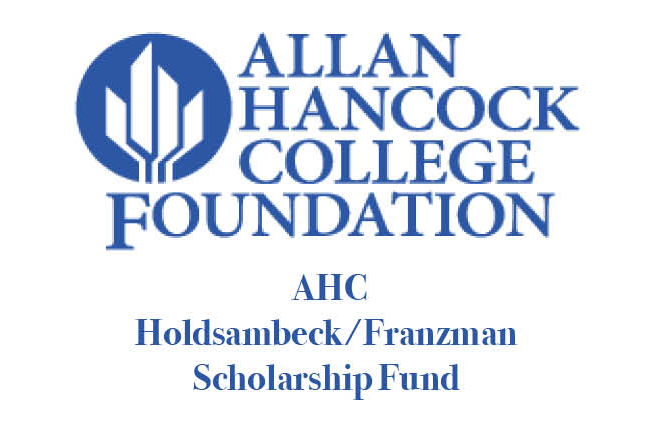
Thank You to Our Bronze Sponsors
Introduction by
Cambridge Center for Behavioral Studies Board of Director Member:
Invited Speakers
Noor Y. Syed, PhD, BCBA-D, LBA/LBS
Center for Autism Advocacy: Research, Education, & Supports (CAARES), SUNY Empire State College Anderson Center International


